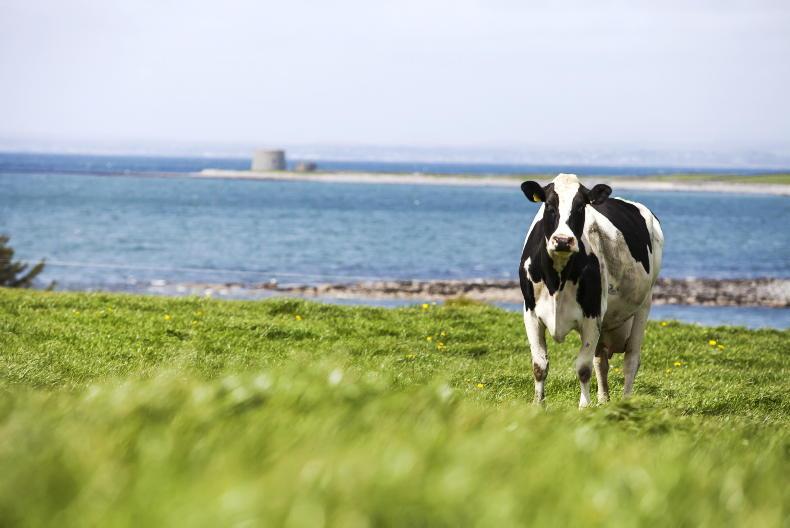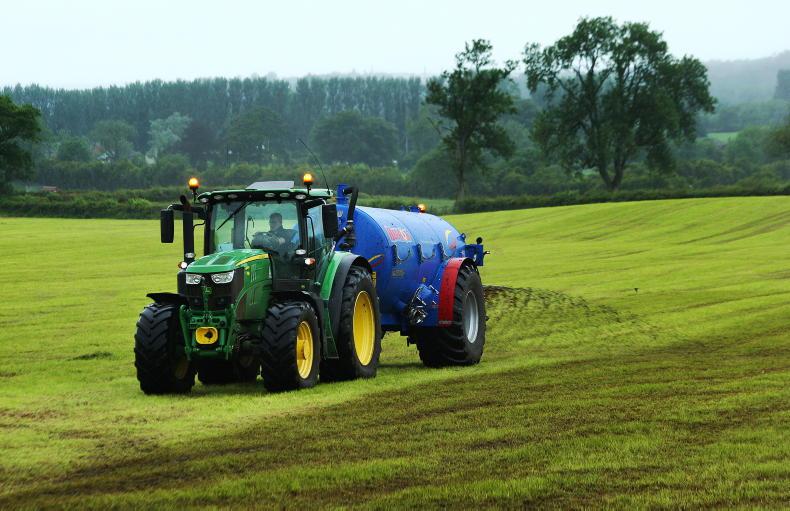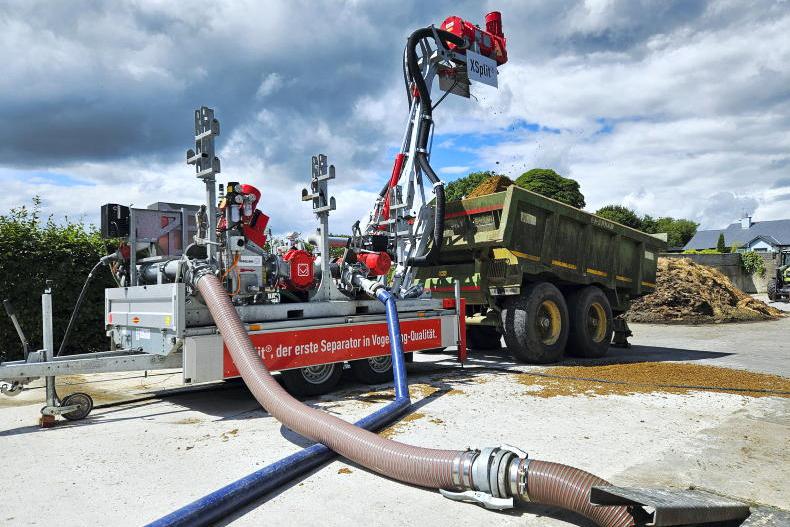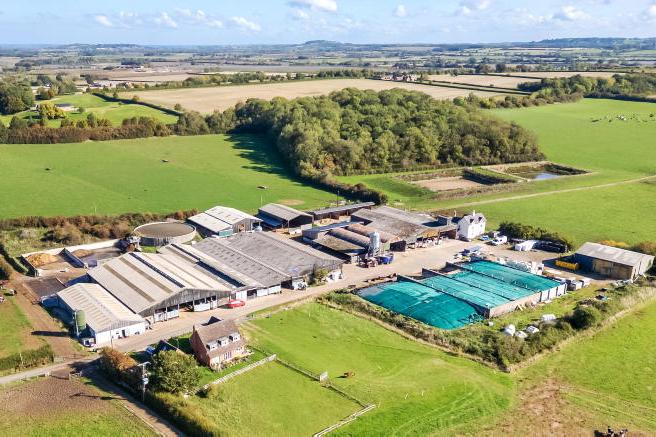Farm Contractors Ireland (FCI), the farm contractors association, is calling for a two-week extension for the slurry-spreading season, as the backlog of work continues to build up.
The closed period begins on 1 October, but the FCI wants a provision to allow a two-week extension, using LESS equipment.
The group has written to Ministers Darragh O’Brien and Charlie McConalogue, calling for them to take stock of “unprecedented weather conditions”. The completion of harvesting grass, cereals and maize will allow for full utilisation of excess slurry nutrients produced on livestock farms, with stock already housed in many areas.

Farmers are left "flying blind" on their N and P statements, according to the ICMSA. \ Philip Doyle
N and P statements
Meanwhile, farmers will have to wait longer for nitrogen (N) and phosphorus (P) statements for their farms.
The Department of Agriculture has clarified that the new definition of eligible land for direct payments means changes under the new Basic Income Support for Sustainability (BISS) system has created a backlog where N and P statements now have to be based on the farmer’s declared “reference area”.
In addition, “certain declared land uses have to be excluded from the area used for N and P statement”, and the effect of cow banding on each herd’s profile has to be taken into account.
Farm advisers have been calling for their publication to give farmers clarity as to their organic nitrogen (OrgN) and phosphorus (OrgP) loading for the year to date.
The ICMSA has acccused the Department of leaving farmers “flying blind”, without information essential to allow them stay under the 170kg/ha OrgN limit, or 250kg/ha OrgN if in derogation.
Livestock numbers must be reduced or slurry exported to allow farmers to lower their OrgN levels. Again, there is concern as to the effect weather will have on the orderly transfer of slurry between holdings, particularly onto beleaguered tillage farms.
Farm Contractors Ireland (FCI), the farm contractors association, is calling for a two-week extension for the slurry-spreading season, as the backlog of work continues to build up.
The closed period begins on 1 October, but the FCI wants a provision to allow a two-week extension, using LESS equipment.
The group has written to Ministers Darragh O’Brien and Charlie McConalogue, calling for them to take stock of “unprecedented weather conditions”. The completion of harvesting grass, cereals and maize will allow for full utilisation of excess slurry nutrients produced on livestock farms, with stock already housed in many areas.

Farmers are left "flying blind" on their N and P statements, according to the ICMSA. \ Philip Doyle
N and P statements
Meanwhile, farmers will have to wait longer for nitrogen (N) and phosphorus (P) statements for their farms.
The Department of Agriculture has clarified that the new definition of eligible land for direct payments means changes under the new Basic Income Support for Sustainability (BISS) system has created a backlog where N and P statements now have to be based on the farmer’s declared “reference area”.
In addition, “certain declared land uses have to be excluded from the area used for N and P statement”, and the effect of cow banding on each herd’s profile has to be taken into account.
Farm advisers have been calling for their publication to give farmers clarity as to their organic nitrogen (OrgN) and phosphorus (OrgP) loading for the year to date.
The ICMSA has acccused the Department of leaving farmers “flying blind”, without information essential to allow them stay under the 170kg/ha OrgN limit, or 250kg/ha OrgN if in derogation.
Livestock numbers must be reduced or slurry exported to allow farmers to lower their OrgN levels. Again, there is concern as to the effect weather will have on the orderly transfer of slurry between holdings, particularly onto beleaguered tillage farms.










SHARING OPTIONS